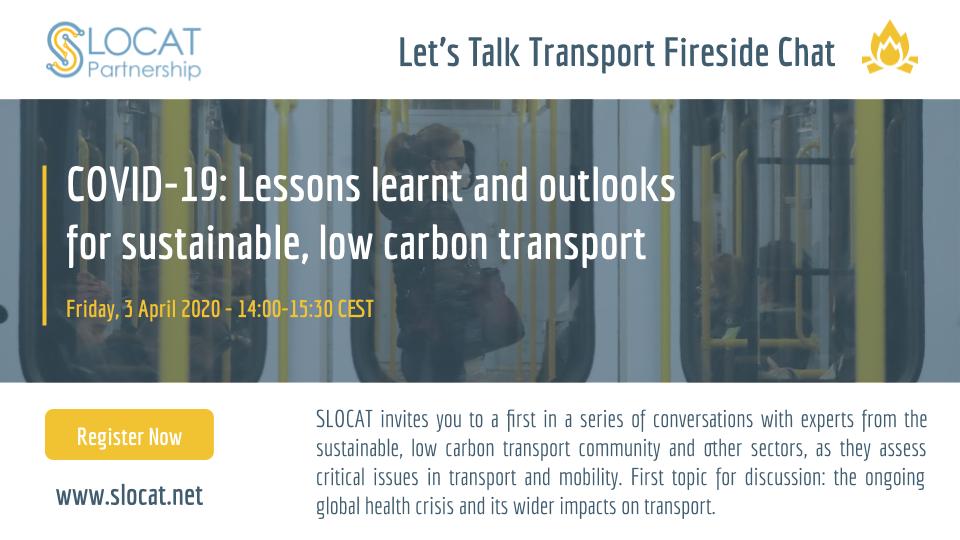COVID-19: Lessons learnt and outlooks for sustainable, low carbon transport
This global health crisis is a game changer, shining a light on the inextricably linked social, economic, and environmental matters our societies must crucially address, as well as on our poor emergency management and preparedness. Against this backdrop, the sustainable, low carbon transport community must capitalise on the nerve struck by this emergency and evolve our narratives, advocacy efforts, and interaction with other communities in the interest of integrated approaches.
Speakers:
- Aimee Gauthier, Chief Knowledge Officer, ITDP
- Armin Wagner, Senior Advisor, Sustainable Mobility, Section “Energy and Transport, GIZ
- Phaeba Thomas, Regional Manager for South Asia, HealthBridge
- Maruxa Cardama, Secretary General, SLOCAT Partnership
Topics for discussion include:
- Lessons learnt and rekindled narratives: What lessons should the sustainable, low carbon movement learn from this global crisis? How can we convey that sustainable, low carbon transport, including public transit and walking/cycling, will be central to socio-economic recovery?
- Informal transport: How can modes of informal transport, which in many places are the way in which many can access socio-economic opportunities, be sustained in the midst and the aftermath of this crisis?
- Public transport: How can we address the stigmatisation of collective public transport born out of this outbreak and its potential consequences on the economic viability of public transport authorities and operators?
- Bailout schemes: What can the sustainable, low carbon transport community do to champion industry bailout schemes that maintain progress towards decarbonisation goals?
- Socio-economic stimulus plans: What to do to ensure that any stimulus package (e.g. a new Marshall Plan spirit), including eventual associated public works and infrastructure investment, unleash the potential contribution of the transport sector, while responding to the hierarchy inherent to the Avoid-Shift-Improve Framework?
- Intergenerational solidarity: We now have two successive generations (Millennials and Gen Z) who have entered the job market in the midst of unprecedented socio-economic crises. What can the sustainable, low carbon transport community do to build intergenerational solidarity, to enable the present and future of these young people and show them we are on their side? How do we protect existing jobs and increase jobs in our sector? Should we take specific social measures, such as increased affordable public transport? What are other creative ideas?
Please contact talya.enriquezromano@slocatpartnership.org for more information.
